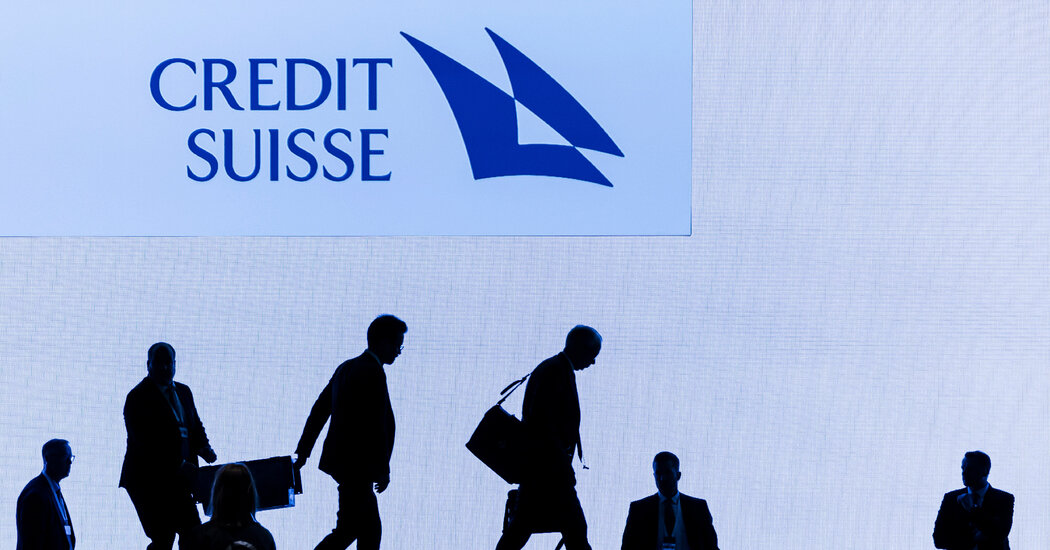Credit Suisse said on Monday that customers had withdrawn nearly $69 billion in the first quarter, underscoring the mounting problems faced by the embattled Swiss bank, which forced a forced sale to arch-rival UBS in March.
In its final financial report as an independent company, Credit Suisse, which lost 1.3 billion Swiss francs or $1.46 billion in the first three months of the year, said it had experienced a “significant net outflow of assets especially in the second half of the year. from March.
They came as investors feared for the health of the troubled 167-year-old lender, causing his shares to plummet and forcing the bank to borrow billions from the Swiss central bank to bolster confidence in its finances. Shareholders had been tense about Credit Suisse for months, worried about its viability amid losses and a string of scandals and financial missteps.
But the Swiss government eventually forced the company to sell itself to UBS for $3.2 billion. The transaction — the most high-profile banking deal since the 2008 financial crisis — was one of the most sweeping attempts to calm markets amid the turmoil caused by the collapse of Silicon Valley Bank in mid-March.
While customer withdrawals at Credit Suisse have since slowed, they have not yet been reversed, suggesting that UBS still has a lot of work to do as it prepares to absorb its stricken competitor. Meanwhile, Credit Suisse still owes CHF 108 billion to the Swiss National Bank, although it had repaid CHF 60 billion during the quarter.
In Monday’s announcement, Credit Suisse also said it had closed a $175 million deal to buy the boutique investment bank from longtime dealmaker and former board member Michael Klein. That acquisition was part of a complicated financial turnaround plan that merged Credit Suisse’s investment bank with Mr. Klein’s, ultimately resulting in the disappearance of the combined company.

